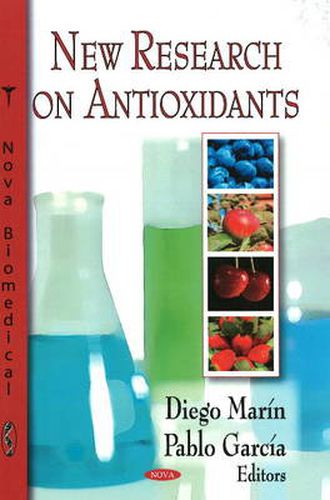Readings Newsletter
Become a Readings Member to make your shopping experience even easier.
Sign in or sign up for free!
You’re not far away from qualifying for FREE standard shipping within Australia
You’ve qualified for FREE standard shipping within Australia
The cart is loading…






In biological systems, the normal processes of oxidation (plus a minor contribution from ionising radiation) produce highly reactive free radicals. These can readily react with and damage other molecules. In some cases the body uses free radicals to destroy foreign or unwanted objects, such as in an infection. However, in the wrong place, the body’s own cells may become damaged. Should the damage occur to DNA, the result could be cancer. Antioxidants decrease the damage done to cells by reducing oxidants before they can damage the cell. Virtually all studies of mammals have concluded that a restricted calorie diet extends the lifespan of mammals by as much as 100%. This remarkable finding suggests that food is actually more damaging than smoking. As food produces free radicals (oxidants) when metabolised, antioxidant-rich diets are thought to stave off the effects of ageing significantly better than diets lacking in antioxidants. The reduced levels of free radicals, resulting from a reduction in their production by metabolism, is thought to be a major cause of the success of caloric restriction in increasing life span. Antioxidants consist of a group of vitamins including vitamin C, vitamin E, selenium and carotenoids, (such as beta-carotene, lycopene, and lutein). This book brings together the latest research in this dynamic field.
$9.00 standard shipping within Australia
FREE standard shipping within Australia for orders over $100.00
Express & International shipping calculated at checkout
In biological systems, the normal processes of oxidation (plus a minor contribution from ionising radiation) produce highly reactive free radicals. These can readily react with and damage other molecules. In some cases the body uses free radicals to destroy foreign or unwanted objects, such as in an infection. However, in the wrong place, the body’s own cells may become damaged. Should the damage occur to DNA, the result could be cancer. Antioxidants decrease the damage done to cells by reducing oxidants before they can damage the cell. Virtually all studies of mammals have concluded that a restricted calorie diet extends the lifespan of mammals by as much as 100%. This remarkable finding suggests that food is actually more damaging than smoking. As food produces free radicals (oxidants) when metabolised, antioxidant-rich diets are thought to stave off the effects of ageing significantly better than diets lacking in antioxidants. The reduced levels of free radicals, resulting from a reduction in their production by metabolism, is thought to be a major cause of the success of caloric restriction in increasing life span. Antioxidants consist of a group of vitamins including vitamin C, vitamin E, selenium and carotenoids, (such as beta-carotene, lycopene, and lutein). This book brings together the latest research in this dynamic field.